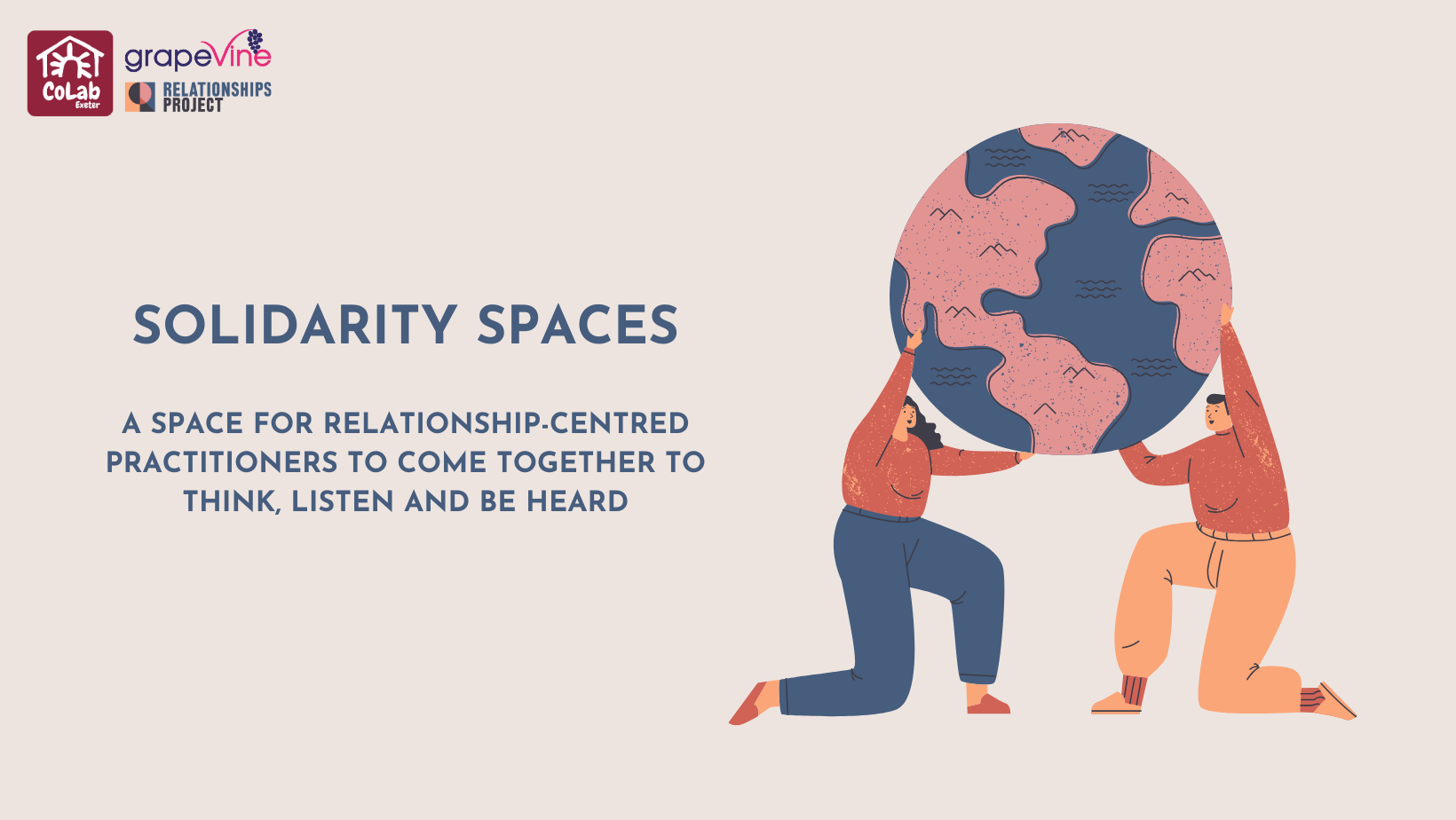Working in relational ways is joyful, empowering, revolutionary. In putting relationships first we unlock our shared humanity, we bring love into unloving spaces, and we acheive things we couldn’t otherwise achieve. But working in relational ways can also be tough, frustrating and lonely.
Alongside Mel Smith (Grapevine), Fiona Carden (CoLab Exeter), Brigid Russell (#SpacesForListening) and Joe Micheli (York Council), we hosted a series of 6 Solidarity Spaces at the end of 2023 / beginning of 2024. 50 minutes, 8 people, 1 zoom room. All coming together to think, listen and be heard.
If this sounds like something that might be valuable to you or your team, please get in touch and we’d be delighted to arrange a few more sessions.

Who is this for?
We know that working in relational ways can be tough, frustrating and lonely.
Do you find yourself getting to the end of the day or week not having had a chance to catch your breath or reflect on your relational practice? Have the past few years felt full-on for you and could you use the chance to reflect on the challenges and opportunities of your relational practice? Are you yearning for a relational space to think, to reflect or to be heard? If your answer is yes to any of these questions, Solidarity Spaces is for you.
While valuing relationships isn’t too controversial a position, I often feel alone in this approach, especially in the professional context. Sure, most people agree, “good” relationships are a beautiful thing. We all have stories of how relationships have made our lives richer (and stories of relationships that did the opposite). But this is different, people often add. This is professional. First we drive tangible outcomes and then we can sprinkle in some relationship, right? Relationships are considered soft and fluffy, and hence easily dismissed.
What to expect
These confidential, relational, online gatherings are for anyone who is yearning for space to think, listen and be heard.
The structure is simple: each call will be 50 minutes long. During that time we will have 3 rounds of timed contributions (2 minutes per person, in each round).
- In Round 1, the prompt is: How are you and what is on your mind right now….
- In Round 2, the invitation is to share your reflections and feelings now, in the light of what you have heard in Round 1….
- In Round 3, the invitation is to share one thing you might like to take forwards, and also to offer some appreciation to any particular thoughts or any aspects of the call that have resonated with you… (At the end of Round 3, the session ends.)
Please feel free to arrive a few minutes before the session starts to get settled and bring with you whatever makes you feel comfortable – a hot drink, some nibbles, a blanket or maybe even the cat. And likewise if there is anything we can do to make the session more accessible for you please do let us know.
Tried and tested by our friends at Spaces for Listening, this structure provides a safe and confidential space in which we can each choose to open up and explore our ideas and feelings. Each one of us takes a turn, in order, and in so doing, we each experience a level of listening, an equal chance to share, and a spirit of appreciation. It’s always okay to pass in any particular round.
As part of my work I often help create environments for people to find their peers. To feel less alone. To realize there are others who see the world the way they do. But it’s been a long while since I got to experience it myself. And what a gift it is.
About the Relationships Project
Our vision is of a more equitable, fairer and kinder world rooted in the understanding that good relationships are the foundations on which all else is built: successful lives, thriving families, good healthcare, effective education, just policing, stable childhoods and so much more.
The Relationships Project works to connect, support and champion the many brilliant individuals and organisations who are doing the hard work of bringing this vision to life and building relationship-centred practice and approaches where they are.
Solidarity Spaces are just one of the many ways that we can support you and your relational practice. Check out our website or send us an email to find out more.
